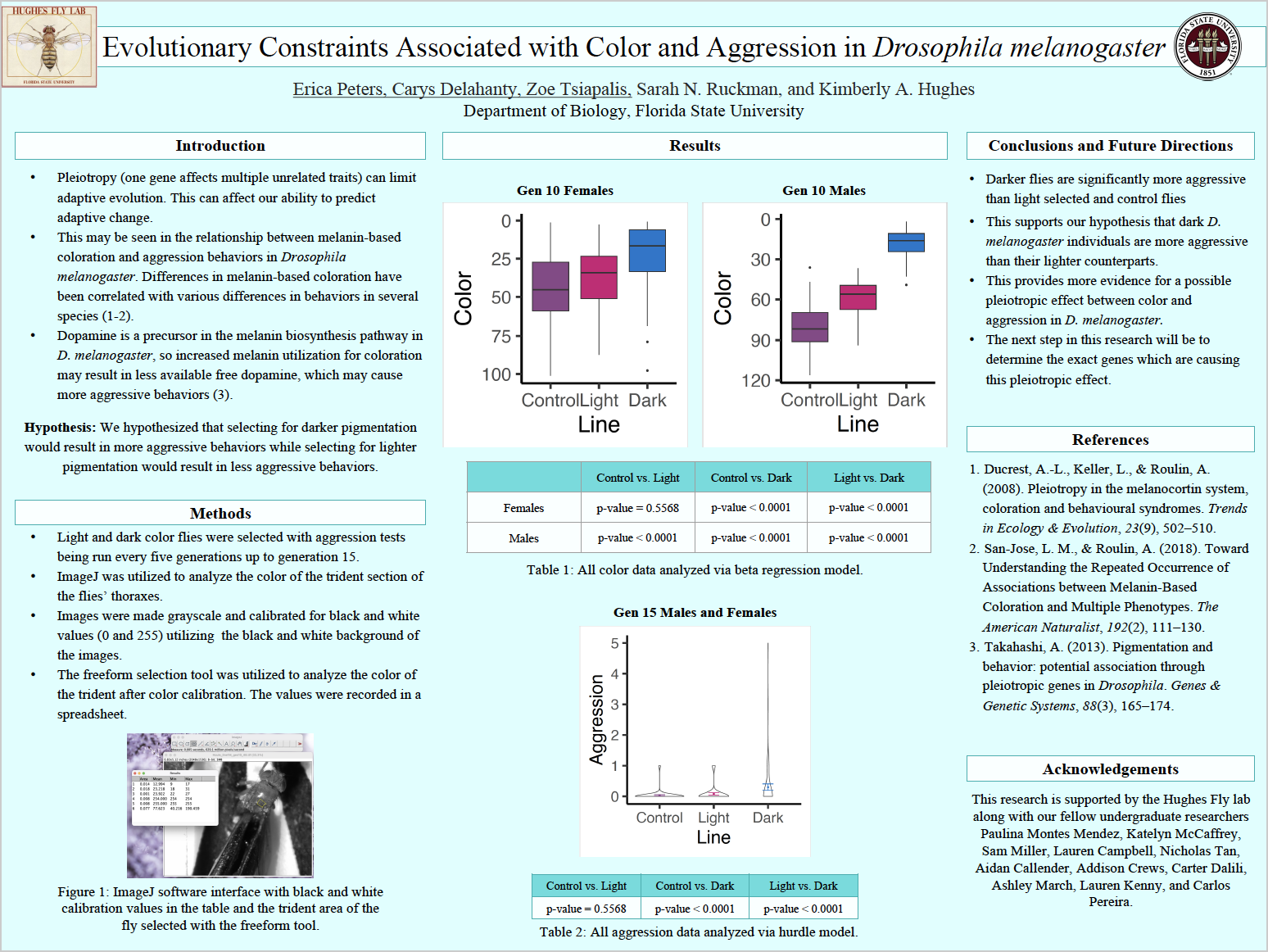Research Symposium
24th annual Undergraduate Research Symposium, April 3, 2024
Erica Peters Poster Session 3: 1:30 pm - 2:30 pm/324

BIO
My name is Erica Peters, and I am a third-year student who is majoring in Biological Sciences. I am currently living in Freeport, Florida and transferred to Florida State University from the University of Pittsburgh in the fall 2023 semester. At the start of this spring semester, I became involved with the Hughes Fly Lab. I am interested in research in several topics related to biology, such as genetics, neuroscience, behavior, and ecology. Currently, I am undecided about my post-graduation plans, but would love to continue experiencing as many opportunities as I can here at Florida State.
Evolutionary Constraints Associated with Color and Aggression in Drosophila melanogaster
Authors: Erica Peters, Sarah N. RuckmanStudent Major: Biological Sciences
Mentor: Sarah N. Ruckman
Mentor's Department: Biological Sciences - Ecology and Evolution Mentor's College: Florida State University Co-Presenters: Carys Delahanty and Zoe Tsiapalis
Abstract
One long standing question in evolutionary biology is whether single genes that control multiple traits (pleiotropy) result in limitations on adaptive evolution. If it does, then our ability to predict adaptation (e.g., in the face of changing environments) is compromised. We are using a much-discussed correlation between body coloration and aggressive behavior as a system to address this question. In Drosophila, this correlation is possibly attributed to dopamine being a precursor to melanin production. Higher melanin production would then result in less free dopamine, possibly resulting in more aggressive behaviors. To test the prediction that darker individuals were more aggressive, we selected for darker and lighter flies (D. melanogaster) and periodically tested for aggressive behavior. Every 5 generations, we tested for aggression and photographed each individual. We used ImageJ to measure the color of the thorax of the fly. We found that the darker flies are more aggressive, suggesting a pleiotropic effect. Our results suggest that dark-selected flies evolved to be more aggressive. The next step in this study is to identify candidate genes underlying the correlation and test for pleiotropic effects using transgenic approaches.
Keywords: Genetics, Pleiotropy, Evolution, Behavior, Aggression


